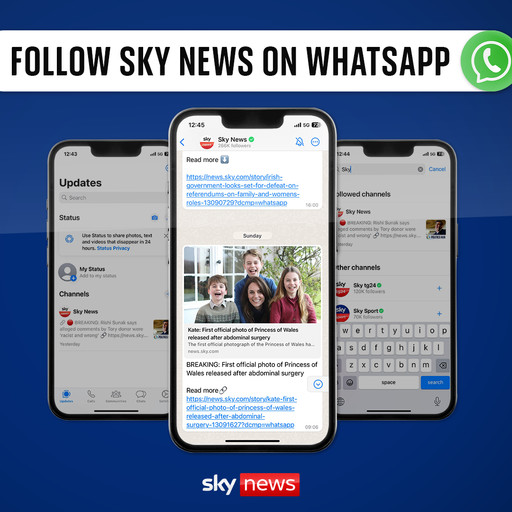US Secretary of State Antony Blinken has warned Israel that an offensive on Rafah, the southern Gazan city sheltering more than one million people, would risk “further isolating” it.
Speaking after a US-sponsored ceasefire resolution was vetoed on Friday by Russia and China at the UN Security Council, Mr Blinken said he had taken part in “candid conversations” with Israeli Prime Minister Benjamin Netanyahu.
A military ground operation in Rafah “risks killing more civilians,” the US secretary of state said as he departed Tel Aviv, his final stop in his sixth urgent trip to the region since the Israel-Hamas war started in October.
“It risks wreaking greater havoc with the humanitarian assistance. It risks further isolating Israel around the world and jeopardising its long-term security and standing,” Mr Blinken said.
The Israeli prime minister responded saying Israel would “do it alone” if necessary as it considers Rafah the last major stronghold of Hamas in the besieged enclave of Gaza.
Mr Blinken’s comments come as permanent UN Security Council members Russia and China vetoed a motion tabled on Friday which tied an immediate ceasefire to the release of hostages taken by Hamas during the 7 October attack.
Russia’s ambassador to the UN claimed the proposal was exceedingly politicised and would have effectively given the green light for Israel to launch a ground offensive in Rafah, where more than one million Palestinians have sought refuge.
More on Gaza
Related Topics:
Image: US ambassador to the UN, Linda Thomas-Greenfield. Pic: Reuters
Israel-Hamas war latest: Three countries reject Gaza ceasefire resolution
Israel has been coming under increasing pressure to allow more humanitarian aid to reach over two million people in Gaza, and better protect civilians, 32,000 of whom are estimated by the local health ministry to have died during Israel’s offensive.
Advertisement
The draft had undergone “many rounds of consultations” with members of the 15-seat council, and marked a toughening of America’s stance towards Israel.
Follow Sky News on WhatsApp
Keep up with all the latest news from the UK and around the world by following Sky News
Tap here
Linda Thomas-Greenfield, the US ambassador to the UN, said the resolution’s failure was “really outrageous and below the dignity of the UN Security Council”.
She added: “There are two deeply, deeply cynical reasons behind this vote. First, Russia and China still could not bring itself to condemn Hamas’s terrorist attacks on October 7.
“Russia and China refuses to condemn Hamas for burning people alive, for gunning down innocent civilians at a concert, for raping women and girls, for taking hundreds of people hostage.
“This was the deadliest single attack on Jews since the Holocaust – and a permanent member of this council can’t even condemn it.”
Read more:UK aid for Gaza ‘stuck at border for weeks’ as Cameron blames IsraelHead of UN agency says Israel blocked him from entering Gaza
Analysis: No resolution, but a significant day
There is no world crisis grave enough to forge unity at the UN, one that reaches beyond the political dynamic of vested interest.
It was never looking like the resolution would pass, not since the Russians had taunted the Americans over their loose language – the “imperative” around an immediate ceasefire. As the Russians put it, an imperative to put our $100 in our pocket doesn’t mean there’s $100 in our pocket.
There are solid arguments behind the Russia/China/Algeria veto. To state that Joe Biden has domestic political difficulties created by the US stance is to state a fact.
The US ambassador had other words for it – audacity and hypocrisy on the part of Russia. Not for the first time at the UN building in midtown Manhattan, the interests of the people of Gaza and a growing catastrophe suddenly felt a long way away.
So no resolution but it’s not a day without significance. America has shifted its position on a ceasefire and, incrementally, increased pressure on Israel.
As important as discussions were around the security council table, the more immediate impact, practically, is always going to come from talks in Qatar on an actual ceasefire and actual hostage release.
It’s a form of words presented to players at the UN that will resonate with the key players in Qatar.
Barbara Woodward, the UK’s permanent representative to the UN, warned: “Palestinians are facing a devastating and growing humanitarian crisis which will not improve until more aid can get into Gaza.
“So we are deeply disappointed that Russia and China were unable to support this council to clearly and unequivocally state the need for an immediate and sustained ceasefire.”
Washington had previously vetoed three draft resolutions since the war began – two of which would have demanded an immediate ceasefire.
Source : Sky News










